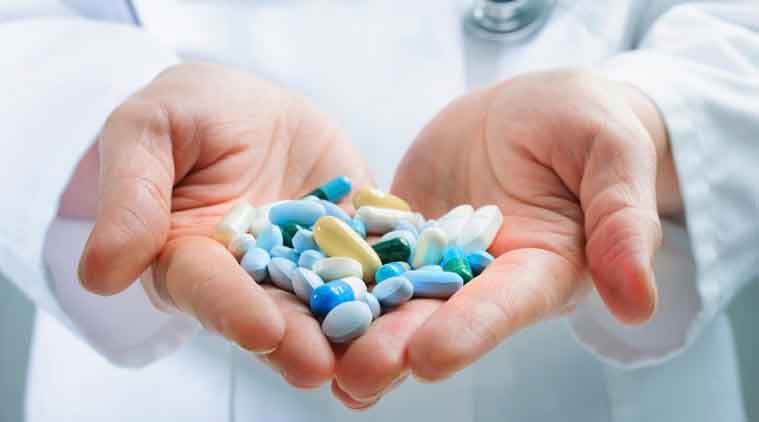Stay updated with the latest - Click here to follow us on Instagram
PMO push for production of drug APIs in India
About 84 per cent of APIs of all drugs manufactured in India are imported; 60 per cent from China alone, according to officials in the Central Drugs and Standards Control Organisation.
 A source in the DCGI said that while there is no API import from China that cannot be manufactured in India, the real issue was pricing. (Source: File)
A source in the DCGI said that while there is no API import from China that cannot be manufactured in India, the real issue was pricing. (Source: File)
TO reduce its dependence on China for active pharmaceutical ingredients (APIs) of drugs, the Prime Minister’s Office has instructed the NITI Aayog along with the ministries of health, commerce and industry, and chemicals and fertilisers to draw up a comprehensive plan to produce APIs in India.
After the PMO’s intervention, at least two meetings have been held over the past week, one between senior officials in the ministries of health, commerce and industry and chemicals and fertilisers and the NITI Aayog. The other, between representatives from the pharmaceutical industry and the health ministry, identified the comparative advantages that Chinese manufacturers enjoy.
Watch what else is making news:
About 84 per cent of APIs of all drugs manufactured in India are imported; 60 per cent from China alone, according to officials in the Central Drugs and Standards Control Organisation (CDSCO). In fact, the Drug Controller General of India (DCGI) is in the process of setting up a regulatory office in China to better monitor the quality of products entering India. The rest of India’s API imports come from European countries, particularly Italy. The value of Chinese API imports, according to DCGI sources, is in the range of Rs 8,000-10,000 crore in the Indian formulation market. The formulation market itself is estimated to be worth Rs 100,000 crore, industry sources said.
The renewed domestic or ‘Make in India’ push for API production is following an assessment on two different counts: one, India suffers a large trade deficit of about $53 billion with China, and New Delhi’s repeated requests for increased market access in sectors such as pharmaceutical and software have so far not yielded results. Two, there has been a fear for long that a breakdown of relations between the countries could adversely impact the pharmaceutical industry and, therefore, drug availability in the country.
In the first meeting attended by the secretaries of health, NITI Aayog and the department of Industrial Policy and Promotion along with senior officials from the CDSCO, the focus was on strengthening the regulatory structure. Both the procedures for licencing and inspection of drugs came under scrutiny. As of now, sources present at the meeting said, neither the CDSCO nor state drug controllers have the wherewithal to ensure adequate quality control. A massive state-level revamp will be required, the sources said.
A source in the DCGI said that while there is no API import from China that cannot be manufactured in India, the real issue was pricing. “Indian companies can take over manufacturing APIs, but costs will multiply about four times,” the source said.
In their meeting with the health and family welfare ministry, industry representatives pointed out that the Chinese industry had a huge volume advantage and greater support from the government. India lost out to China on the pricing front because companies here paid much more for effluent treatment and power. The ministry has asked the industry to revert with concrete action points on government intervention required to ensure APIs are ‘Made in India’.
Meanwhile, the CDSCO has been in the process of revamp, preparing for a surge in ‘Made in India’ medicines and APIs.







